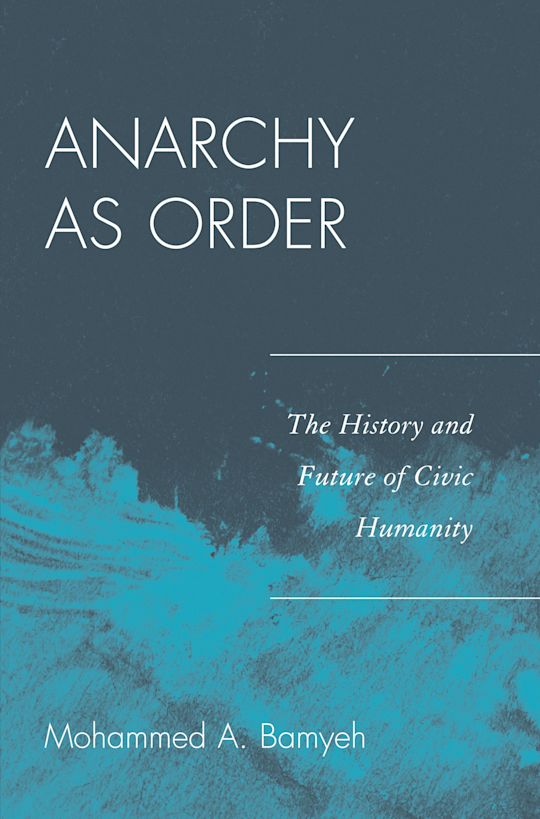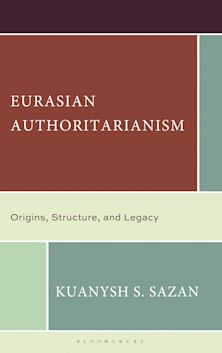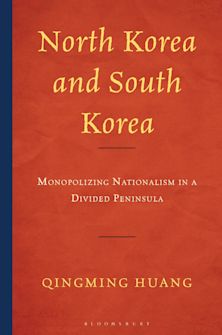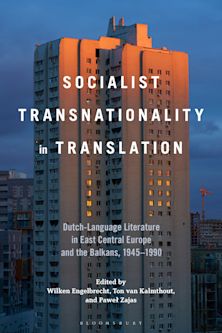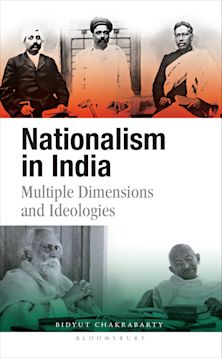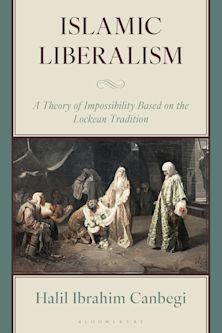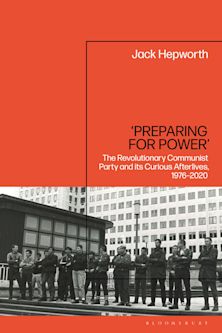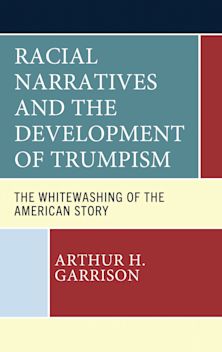- Home
- ACADEMIC
- Politics & International Relations
- Political Ideologies
- Anarchy as Order
This product is usually dispatched within 3 days
- Delivery and returns info
-
Free US delivery on orders $35 or over
You must sign in to add this item to your wishlist. Please sign in or create an account
Description
This original and impressively researched book explores the concept of anarchy-"unimposed order"-as the most humane and stable form of order in a chaotic world. Mohammed A. Bamyeh traces the historical foundations of anarchy and convincingly presents it as an alternative to both tyranny and democracy. He shows how anarchy is the best manifestation of civic order, of a healthy civil society, and of humanity's noblest attributes. The author contends that humanity thrives on self-regulation rather than imposed order, that large systems are inherently more prone to tyranny than small systems, that power is the enemy of freedom, and that freedom and community are complementary rather than opposing values. He concludes that a more rational world is produced not by delegated representatives but by direct participation in common affairs.
Bamyeh offers a concise philosophy of anarchy in the context of war, civil society, global order, experiences of freedom, solidarity, the evolution of modern states, and tax systems. He distinguishes anarchy from more familiar ways of thinking about the relationship between state and society that highlight the importance of power and control for social order. Further, he argues that the necessity for expert guidance or social collaboration in some areas of common public life does not require such areas to be run by a grand, overarching, or representative state. A cogent and compelling critique of the modern state, this provocative book clarifies how anarchy may be both a guide for rational social order and a science of humanity.
Table of Contents
Chapter 1: Anarchy as a Science of Humanity
Chapter 2: What is Anarchy?
Part II: Around the Idea
Chapter 3: Civil Society and the State
Chapter 4: Trust and the Politics of Alliance
Chapter 5: Freedom and Commitment
Chapter 6: Anarchy as a Destination
Product details
| Published | May 16 2010 |
|---|---|
| Format | Paperback |
| Edition | 1st |
| Extent | 250 |
| ISBN | 9780742556744 |
| Imprint | Rowman & Littlefield Publishers |
| Dimensions | 9 x 6 inches |
| Series | World Social Change |
| Publisher | Bloomsbury Publishing |
About the contributors
Reviews
-
[A] serious and considered effort to engage the profoundly difficult task of imagining a society based on unimposed order, while we remain necessarily locked within the analytical and conceptual limitations that reflect our everyday experiences with a society based on imposed order.
Contemporary Sociology
-
The principle audiences for Anarchy as Order are sociologists who want to know more about anarchism and anarchists who seek sociological interpretation of their philosophy.
Societies Without Borders
-
Civil society has been at the forefront of global thinking for a generation, and more recently conceptions of anarchy have gained attention. These two conceptual frameworks are linked by a notion of social self-regulation, yet too few theorists have helped us understand the connection. In a book that should have many readers, Mohammed Bamyeh brings this connection out in a thoughtful, clear, and timely way.
Craig Calhoun, Professor of Social Sciences, Arizona State University, USA









